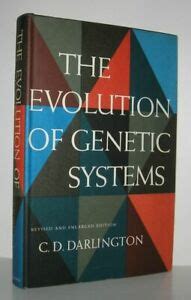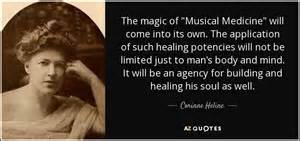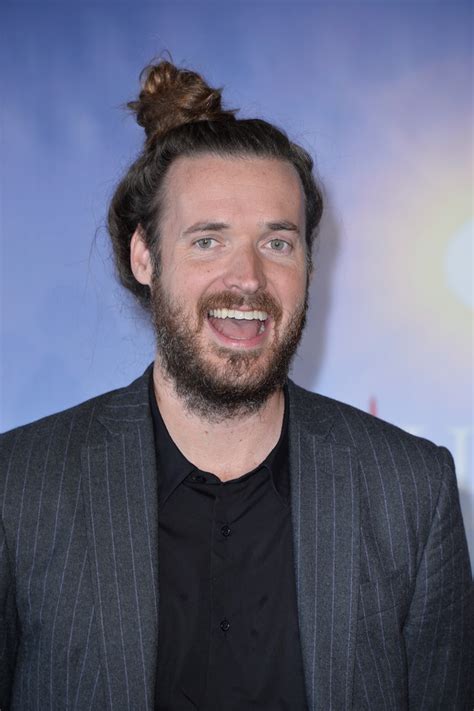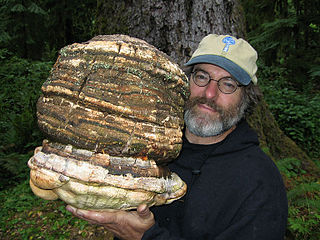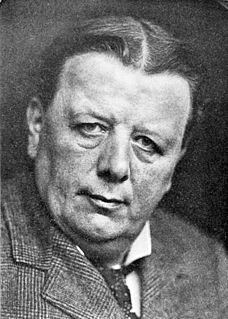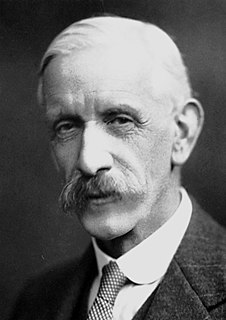Top 212 Molecular Quotes & Sayings - Page 4
Explore popular Molecular quotes.
Last updated on April 17, 2025.
We may, I believe, anticipate that the chemist of the future who is interested in the structure of proteins, nucleic acids, polysaccharides, and other complex substances with high molecular weight will come to rely upon a new structural chemistry, involving precise geometrical relationships among the atoms in the molecules and the rigorous application of the new structural principles, and that great progress will be made, through this technique, in the attack, by chemical methods, on the problems of biology and medicine.
Perhaps we humans are cosmic dwarfs; perhaps we are molecular giants. But there is no denying our mid-scale complexity. We humans live neither at the range of the infinitely small, nor at that of the infinitely large, but we might well live at the range of the infinitely complex. We live at the range of the most caring; we ourselves might embody the most capacity for caring.
Being in worship and declaring you know, the truth of scripture through song and, you know, because music gathers all of who you are, it helps you in your auditory senses, it helps you scientifically. It says it helps you at a molecular level and, so doing all these things and then declaring the living word of God, I mean, there's nothing quite like it when you're hanging on for your life.
We know from astronomy that the universe had a beginning, from physics that the future is both open and unpredictable, from geology and paleontology that the whole of life has been a process of change and transformation. From biology we know that our tissues are not impenetrable reservoirs of vital magic, but a stunning matrix of complex wonders, ultimately explicable in terms of biochemistry and molecular biology. With such knowledge we can see, perhaps for the first time, why a Creator would have allowed our species to be fashioned by the process of evolution.
Even then, more than a year earlier, there were neurons in her head, not far from her ears, that were being strangled to death, too quietly for her to hear them. Some would argue that things were going so insiduously wrong that the neurons themselves initiated events that would lead to their own destruction. Whether it was molecular murder or cellular suicide, they were unable to warn her of what was happening before they died.
We are now witnessing, after the slow fermentation of fifty years, a concentration of technical power aimed at the essential determinants of heredity, development and disease. This concentration is made possible by the common function of nucleic acids as the molecular midwife of all reproductive particles. Indeed it is the nucleic acids which, in spite of their chemical obscurity, are giving to biology a unity which has so far been lacking, a chemical unity.
Life is movement. Movement is change. Every time a sub molecular particle swings through time and space, something is changing. Change, therefore, is inevitable. It is the nature of life itself. The trick in life is not to try to avoid change, but to create change. Then it is the kind of change you choose.
I think nobody would claim that random genetic drift is capable of producing adaptation, that is to say the illusion of design. Random genetic drift can't produce wings that are good at flying, or eyes that are good at seeing, or legs that are good at running. But random genetic drift probably is very important in driving evolution at the molecular genetic level.
Only a tiny fraction of corpses fossilize, and we are lucky to have as many intermediate fossils as we do. We could easily have had no fossils at all, and still the evidence for evolution from other sources, such as molecular genetics and geographical distribution, would be overwhelmingly strong. On the other hand, evolution makes the strong prediction that if a single fossil turned up in the wrong geological stratum, the theory would be blown out of the water.
Cell genetics led us to investigate cell mechanics. Cell mechanics now compels us to infer the structures underlying it. In seeking the mechanism of heredity and variation we are thus discovering the molecular basis of growth and reproduction. The theory of the cell revealed the unity of living processes; the study of the cell is beginning to reveal their physical foundations.
As an adult I discovered that I was a pretty good autodidact, and can teach myself all kind of things. And developed a great interest in a number of different things from how to build a street hot rod from the ground up to quantum mechanics, and those two different kinds of mechanics, and it was really in the sciences, quantum mechanics, molecular biology, I would begin looking at these things looking for ideas, but in fact you don't read it for ideas you read it for curiosity and interest in the subject.
As Heinz Pagels has said, The challenge to our civilization which has come from our knowledge of the cosmic energies that fuels the stars, the movement of light and electrons through matter, the intricate molecular order which is the biological basis of life, must be met by the creation of a moral and political order which will accommodate these forces or we shall be destroyed. It will try our deepest resources of reason and compassion.
If the estimated age of the cosmos were shortened to seventy-two years, a human life would take about ten seconds. But look at time the other way. Each day is a minor eternity of over 86,000 seconds. During each second, the number of distinct molecular functions going on within the human body is comparable to the number of seconds in the estimated age of the cosmos. A few seconds are long enough for a revolutionary idea, a startling communication, a baby's conception, a wounding insult, a sudden death. Depending on how we think of them, our lives can be infinitely long or infinitely short.
Most Muggles lived in a world defined by the limits of what you could do with cars and telephones. Even though Muggle physics explicitly permitted possibilities like molecular nanotechnology or the Penrose process for extracting energy from black holes, most people filed that away in the same section of their brain that stored fairy tales and history books, well away from their personal realities: Long ago and far away, ever so long ago.
We are eating hybridized and genetically modified (GMO) foods full of antibiotics, hormones, pesticides, and additives that were unknown to our immune systems just a generation or two ago. The result? Our immune system becomes unable to recognize friend or foe - to distinguish between foreign molecular invaders we truly need to protect against and the foods we eat or, in some cases, our own cells. In Third World countries where hygiene is poor and infections are common, allergy and autoimmunity are rare.
The words are strung together, with their own special grammar-the laws of quantum theory-to form sentences, which are molecules. Soon we have books, entire libraries, made out of molecular "sentences." The universe is like a library in which the words are atoms. Just look at what has been written with these hundred words! Our own bodies are books in that library, specified by the organization of molecules-but the universe and literature are organizations of identical, interchangeable objects; they are information systems.
A scientist's life, the author says, is indeed conflictual, formed by battles, defeats, and victories: but the adversary is always and only the unknown, the problem to be solved, the mystery to be clarified. It is never a matter of civil war; even though of different opinions, or of different political leanings, scientists dispute each other, they compete, but they do not battle: they are bound together by a strong alliance, by the common faith "in the validity of Maxwell's or Boltzmann's equations," and by the common acceptance of Darwinism and the molecular structure of DNA.
The major credit I think Jim and I deserve ... is for selecting the right problem and sticking to it. It's true that by blundering about we stumbled on gold, but the fact remains that we were looking for gold. Both of us had decided, quite independently of each other, that the central problem in molecular biology was the chemical structure of the gene. ... We could not see what the answer was, but we considered it so important that we were determined to think about it long and hard, from any relevant point of view.
Few scientists acquainted with the chemistry of biological systems at the molecular level can avoid being inspired. Evolution has produced chemical compounds exquisitely organized to accomplish the most complicated and delicate of tasks. Many organic chemists viewing crystal structures of enzyme systems or nucleic acids and knowing the marvels of specificity of the immune systems must dream of designing and synthesizing simpler organic compounds that imitate working features of these naturally occurring compounds.
I thought in my Nobel Lecture I pointed that I was delighted that the Swedish Academy of Science did not quote anything about my current work right now, because the current work that my group is focusing on is actually both the time resolve electrons and possibly x-rays to be able to get the architecture of these molecules, the molecular structures themselves, of very complex biological systems. That's the ultimate goal.
If belief in evolution is a requirement to be a real scientist, it’s interesting to consider a quote from Dr. Marc Kirschner, founding chair of the Department of Systems Biology at Harvard Medical School:
“In fact, over the last 100 years, almost all of biology has proceeded independent of evolution, except evolutionary biology itself. Molecular biology, biochemistry, physiology, have not taken evolution into account at all.
Nobody wants to do it - not real change, not soul change, not the painful molecular change required to truly become who you need to be. Nobody ever does real transformation for fun. Nobody ever does it on a dare. You do it only when your back is so far against the wall that you have no choice anymore.
The result of [the] cumulative efforts to investigate the cell - to investigate life at the molecular level - is a loud, clear, piercing cry of 'design!' The result is so unambiguous and so significant that it must be ranked as one of the greatest achievements in the history of science. The discovery rivals those of Newton and Einstein, Lavoisier and Schrödinger, Pasteur, and Darwin. The observation of the intelligent design of life is as momentous as the observation that the earth goes around the sun.
In the etheric body are centered the forces animating man's physical vehicle, so disease is evidenced in the etheric before it manifests in the physical. The etheric, composed of finer, more attenuated substances than the physical, is corresponding amenable to vibratory influences. It is upon the former that harmony and rhythm have the most potent effect. Good music readjusts its molecular structure in accordance with the original divine plan, the archetype, and refines and accentuates it's vibratory currents. All forms of beauty and harmony increase this regenerating process.
My two older brothers are both molecular biologists and neuroscientists, and I feel like representing them accurately is never done in movies, and I really wanted to at least capture the spirit of a Ph.D. student whose goal and aspiration is to increase the sum total of human knowledge. That is noble. That was really, really important, to capture the three-dimensionality of scientists. Scientists fall in love, scientists have the greatest sense of humor, scientists are passionate.
If a fish is born in your aquarium and you call him John, write out a birth certificate, tell him about his family history, and in two minutes he gets eaten by another fish - that's tragic. But it's only tragic because you projected a separate self where there was none. You got hold of a fraction of dynamic process, a molecular dance, and a separate entity out of it.
I believe that mycelium is the neurological network of nature. Interlacing mosaics of mycelium infuse habitats with information-sharing membranes. These membranes are aware, react to change, and collectively have the long-term health of the host environment in mind. The mycelium stays in constant molecular communication with its environment, devising diverse enzymatic and chemical responses to complex challenges.
The chemical differences among various species and genera of animals and plants are certainly as significant for the history of their origins as the differences in form. If we could define clearly the differences in molecular constitution and functions of different kinds of organisms, there would be possible a more illuminating and deeper understanding of question of the evolutionary reactions of organisms than could ever be expected from morphological considerations.
As a progressive discipline [biochemistry] belongs to the present century. From the experimental physiologists of the last century it obtained a charter, and, from a few pioneers of its own, a promise of success; but for the furtherance of its essential aim that century left it but a small inheritance of facts and methods. By its essential or ultimate aim I myself mean an adequate and acceptable description of molecular dynamics in living cells and tissues.
I am done with great things and big things, great institutions and big success, and I am for those tiny, invisible molecular moral forces that work from individual to individual, creeping through the crannies of the world like so many rootlets, or like the capillary oozing of water, yet which if you give them time, will rend the hardest monuments of man's pride.
It could be that at some earlier time, somewhere in the universe, a civilization evolved by probably some kind of Darwinian means to a very, very high level of technology- and designed a form of life that they seeded onto perhaps this planet. And I suppose it's possible that you might find evidence for that if you look at the details of biochemistry, molecular biology, you might find a signature of some sort of designer.





